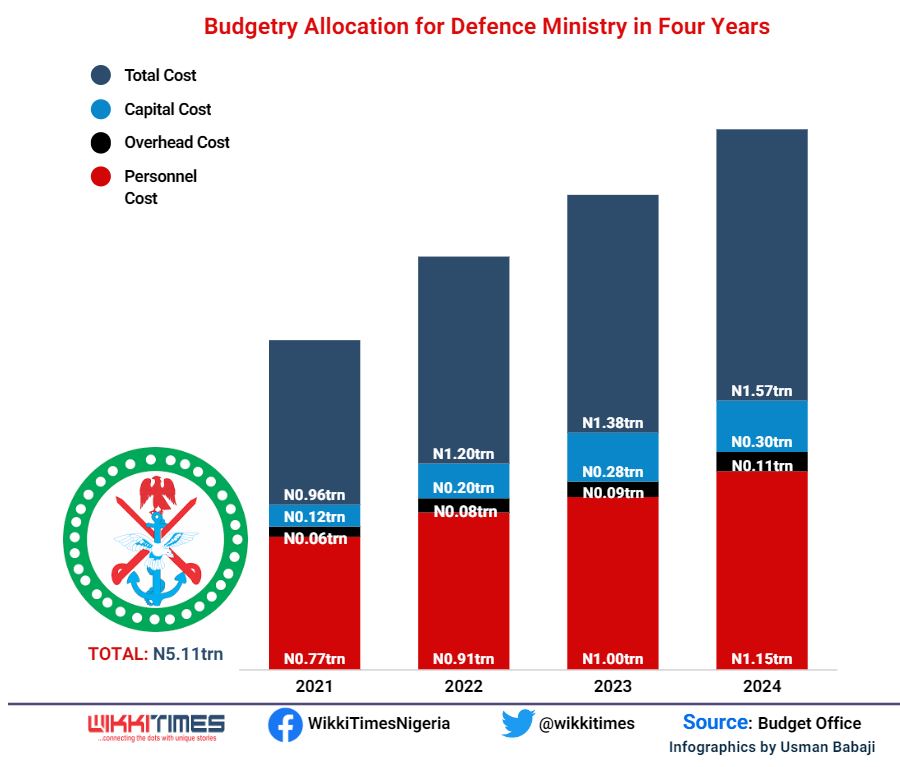From 2021 to 2024, the Nigerian Ministry of Defence got a budgetary allocation of N5.11 trillion to curtail the lingering insecurity across the nation.
In the 2021 budget, the ministry did not account for N966.4 billion. While N772.3 billion was allocated to personnel costs, overhead and capital costs garnered N66.2 billion and N127.8 billion respectively.
In 2022, N912.5 billion was budgeted for personnel costs, N83.5 billion for overhead and N204.6 was for capital costs, accumulatively totalling N1.2 billion.
Similarly, N1.25 trillion was allocated to the ministry in the 2023 budget, where N1 billion was given to the personnel, N97.1 billion and N285.04 were earmarked for the overhead cost and capital cost respectively, hence, totalling N1.38 trillion for the ministry.
In the 2024 budget, the Ministry of Defence was allocated N1.15 trillion for personnel; N116.5 billion for overhead and N308.2 billion for capital, totaling N1.57 trillion.

However, the Minister of Defence, Abubakar Badaru, said the allocation for the ministry in 2024 was not enough to fight insecurity in the country.
When appeared before a joint National Assembly Committee on Defence to defend the ministry’s 2024 budget proposal on Wednesday, Badaru appealed to the National Assembly to increase his ministry’s budget for the 2024 fiscal year.
According to him, the rising cost of operations and the increase in the price of diesel and fuel necessitated the call for an increment of the ministry’s allocation.
“I appeal to the distinguished Senators and honourable members to review the ministry’s budget given the prevailing economic situation to enable the ministry to function effectively.
Read Also: WikkiData: Northern States Budgeted Over N200 Billion for Govt Houses in 2023
“You are already aware of the inflationary trend and the cost of diesel, petrol, and operational costs. The overhead is very low, and we urge you to support us to see how we can improve our overhead,” he said.
“Instead of fighting in one sector, the bandits or insurgents run into another sector, that was the intent of the supplementary budget, and we assure the senators that we will track this expenditure and make sure the monies appropriated will be utilized fully, and we will account appropriately”.
But the minister was tackled by the Chairman of the Senate Committee on Defence, Ahmad Lawan, stressing that there would be no justification for huge budgetary allocation for the ministry if there was no improvement in security across the country.
Senator Lawal said, “If you are given N100bn, how has it improved the security situation in the country? It will not augur well to appropriate money without justification.”
The lingering insecurity across the country, especially in the northwestern part of the country, calls into question the huge amount of funds expended amid the killings, kidnappings coupled with sectarian crises.
Thousands of civilians were killed, injured or displaced by the armed conflict between the armed groups Boko Haram and Islamic State’s West African Province (ISWAP) and the Nigerian military in north-eastern Nigeria in the last decade.




